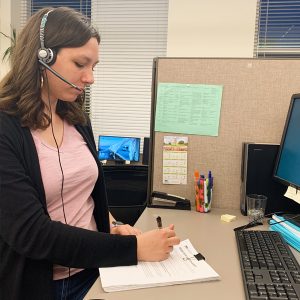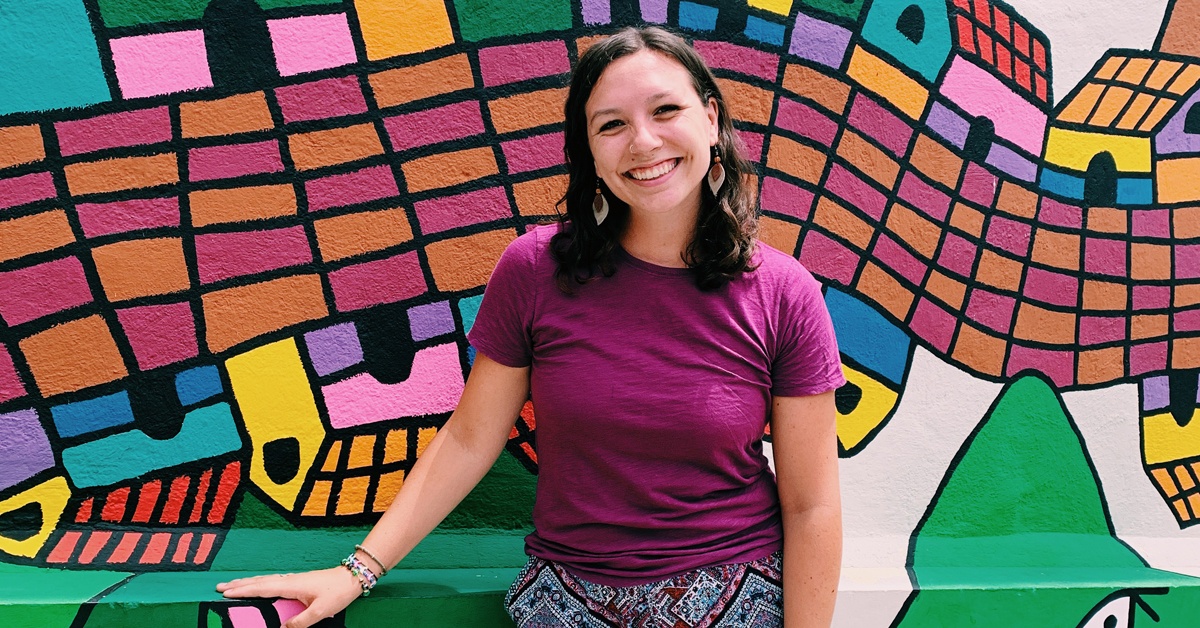Leah Moat is an Epidemiology MPH student at the School of Public Health who is pursuing a degree in public health to help make health a human right. She is a student worker on the Foodborne Illness Unit at the Minnesota Department of Health (MDH) and was recently re-assigned to help fight COVID-19. Learn more about her experience as a public health student working during a public health pandemic by reading below.
How has COVID-19 impacted your life?
[LEAH] COVID-19 has shown me the value of my public health education, and the important role that epidemiologists play in our society. It has reassured me that this field matters, that it’s what I’m passionate about, and that the work I’m learning to do can make an important impact.

How are you coping with COVID-19?
[LEAH] I’m “coping” with COVID-19 by balancing my intake of news and COVID-19 information with time spent outside, being active, or relaxing with family members and our dog. It can get hard to find that balance when both my work and classes are so focused on the outbreak, but I’ve been enjoying taking long walks to unwind, getting extra sleep, and helping to cook and bake for my family.
In what ways are you working on or responding to the COVID-19 outbreak?
[LEAH] Before the COVID-19 outbreak, I was a student worker in the Foodborne Illness Unit at the Minnesota Department of Health. Since the pandemic started, all infectious disease employees, including myself and other student workers, have been reassigned to work on the response. Now, my work mostly involves interviewing lab-confirmed COVID-19 cases to get information on their symptoms and exposures, informing them of what they should do to limit disease transmission, and helping to get in touch with their contacts.
What acts of kindness, positivity, or goodness have you noticed in dealing with this pandemic?
[LEAH] As I’ve been talking to COVID-19 cases, many of them want to know how they can donate plasma, antibodies, or anything that might help researchers or other COVID-19 patients. It’s striking to me that after dealing with — in many cases — severe illness, their minds go to how their experience can be used to help others.
What is the first thing you plan to do once this is over and things are ‘back to normal’?
[LEAH] I’m looking forward to attending a Twins game at Target Field!
Do you think COVID-19 will make more students interested in public health?
[LEAH] I definitely think that this experience will increase students’ interest in studying public health because we’re seeing epidemiologists and other public health leaders make meaningful contributions to the pandemic response. It is helping the public realize the importance of the work we do, and the relevance it has to each of our lives. I think this has also proven that despite infectious disease prevalence having declined in some parts of the world over the last several decades, there is still a huge need for infectious disease surveillance and control, especially as our world becomes more interconnected.

